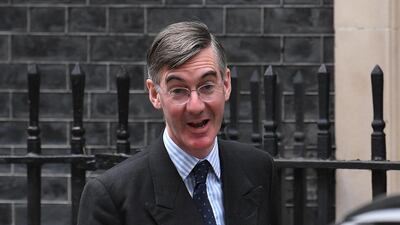Reports that the 1949 classic film, The Third Man, is to be re-released to mark its anniversary prompted one critic last week to suggest the movie was a fitting lesson for the hardship that could accompany Britain's exit from the EU.
The plot centres around the activities of black marketeers pedalling counterfeit penicillin in post-Second World War Vienna. Government studies on the impact of a disruption of trade ties with Britain’s nearest markets in Europe suggested the medicine sector could be one of the hardest hit. Disruption and shortages could lead to the type of scenes normally only seen in film scripts or countries in economic meltdown.
The issue exploded on to the frontpages on Friday after the government’s top medical officer spoke out against a cabinet minister who had derided a doctor responsible for one the surveys predicting shortages. Dame Sally Davies said it was unacceptable that Conservative MP Jacob Rees-Mogg had accused Dr David Nicholl of fearmongering and dismissed out of hand suggestions that patients could die as a result of supply breakdowns.
Experts fear a no-deal Brexit could have a devastating impact on Britain’s health service the NHS, caused by a potential shortage of medicines, projected delays in licensing applications and supply chain issues.
In its contingency operations, the health ministry said it had secured additional roll on, roll off freight capacity away from Dover and Folkstone and has purchased extra warehouse space for to help stockpile medicines.
It has also booked space on aeroplanes for the transport of products with short shelf lives and is working with pharmaceutical companies to ensure the increase in buffer stocks of 7,000 prescription only or pharmacy medicines.
The government said it was also making changes to regulatory requirements to allow medicines and medical products to continue to be sold in the UK in event of no-deal.
Currently, Britain is able to license its medicines through the EU, but in a no-deal scenario, the country would need to license them separately to countries in the bloc.
Health professionals are concerned that this could mean delays in applications for licenses because the UK will represent a much smaller market, and that this could mean medicines won’t be as readily available.
Experts have warned the effects could be devastating.
In a joint statement last week signed by 11 health organisations, including the Royal College of Midwives, Unison, GMB, Unite and the TUC, health workers called on the government to take a no-deal Brexit off the table.
The statement said: "A no-deal could cause significant disruption to the supply of medicine, lasting up to six months. Many medicines, including life-saving agents for cancer diagnosis and therapy, cannot be stockpiled and, for those that can, stockpiles could run out.
"These kinds of shortages and delays can be fatal. No responsible government should take that risk."
In the government's no-deal preparations, codenamed "Operation Yellowhammer", it identifies medicine supply chains as one of its 12 areas of risk. A leak of an official Yellowhammer document in mid-August revealed that no-deal would lead to food, medicinal and petrol shortages, as well as a "three-month meltdown" at ports unable to cope with extra checks.
A no-deal Brexit would also impact on the way medicines safety is monitored in the UK in the future.
But more immediate concerns relate to the maintenance of supply of medicines in the event of no deal.
Currently supply chains for medicines are integrated across the EU, and often involve complicated movement between countries during the medicines production process.
Medicines can currently easily cross borders between the UK and other EU countries now, but a no-deal will complicate this and will likely lead to delays.
In a letter to pharmaceutical companies in December 2018, the health secretary Matt Hancock said that while the Government has made plans to control arrangements at the UK border to ensure the flow of goods, the European Commission had made clear that in the event of no deal, it will impose third country controls on good entering the EU from the UK. Mr Hancock suggested he had become the biggest player in the global market for refrigeration systems that were needed as a backstop against disruption.
“Although we cannot know exactly what each member state will do with respect to checks on the EU border, the cross-Government planning assumptions have been revised so we can prepare for the potential impacts that the imposition of third country controls by member states could have,” he said.
“These impacts are likely to be felt mostly on the short straits crossings into Dover and Folkestone, where the frequent and closed loop nature of these mean that both exports and imports would be affected.”
He warned that in a worst case scenario, there would be “significantly reduced access across the short straits, for up to six months.”
In a briefing paper on Brexit and medicinal regulation released in February, the government said it had undertaken actions to address potential impacts relating to the supply of medicines and to ensure medicines will continue to be licenced and available in the UK.

